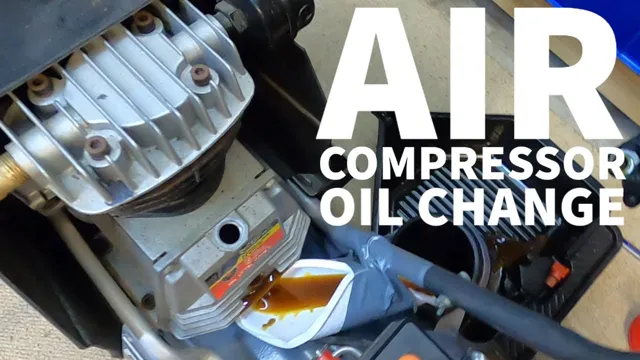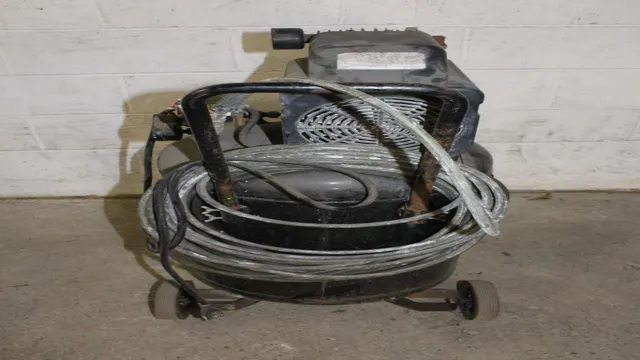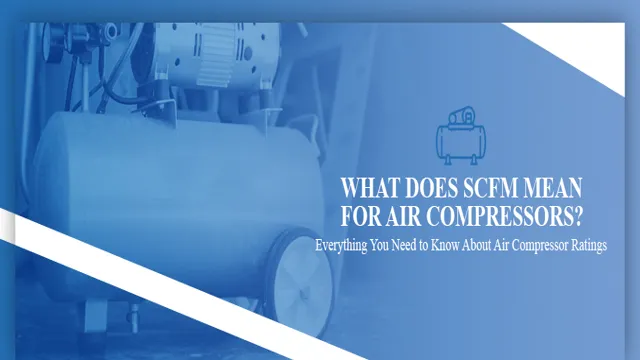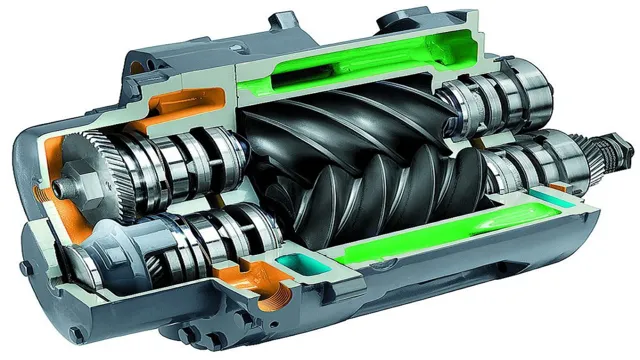Can I Use Gear Oil in My Air Compressor? Find Out If It’s Safe and Effective
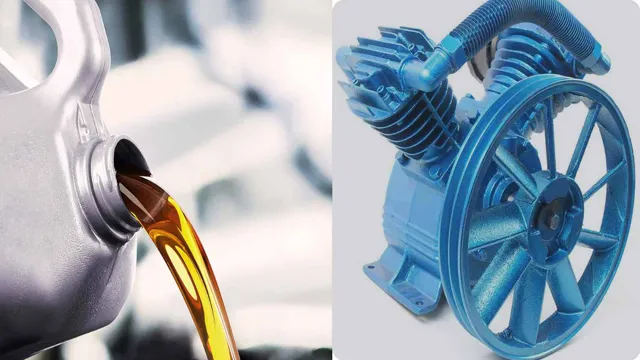
If you’re an air compressor owner who’s ever faced a low gear oil situation, you may find yourself wondering whether it’s okay to use gear oil in your air compressor. After all, both these oils seem to do similar jobs – lubricate machinery. However, that’s not the whole story.
Before you go ahead and mix gear oil with your compressed air, it’s crucial to understand the differences between the two types of oil and their specific purposes. In this blog, we’ll examine whether gear oil is a suitable substitute for air compressor oil or a recipe for disaster. So, sit back, relax, and let’s dive in!
Understanding Gear Oil vs. Compressor Oil
As tempting as it may be to try and use gear oil in your air compressor, it is important to understand the differences between gear oil and compressor oil before doing so. While both types of oil serve the purpose of lubricating moving parts, they are formulated differently to meet the demands of their specific applications. Gear oil, for example, is designed to withstand high pressures and temperatures typically seen in automotive gearboxes, while compressor oil is formulated to resist oxidation and reduce foaming in air compressor systems.
Using the wrong type of oil can lead to premature wear and tear on your compressor and even potential safety hazards. So, while it may seem like a cost-saving measure to use gear oil in your air compressor, it is always best to stick with the manufacturer’s recommended oil to ensure optimal performance and longevity of your equipment.
Composition and Properties
When it comes to lubrication, two of the most commonly confused oils are gear oil and compressor oil. While the two share some similarities, they also have significant differences that make them unsuitable for use interchangeably. Composition wise, gear oil is made to withstand high pressure, high temperatures, and heavy loads.
It is formulated using high viscosity base oils and various performance additives that help it resist foaming, extend its life, and protect gears from wear and tear. On the other hand, compressor oil is designed to cool and seal compressor components while also reducing friction and wear. It contains additives that inhibit oxidation and rust while maintaining its viscosity in different temperatures.
Understanding the composition and properties of each oil is crucial in ensuring that the right product is used in the right application, preventing costly damage to equipment and minimizing downtime.
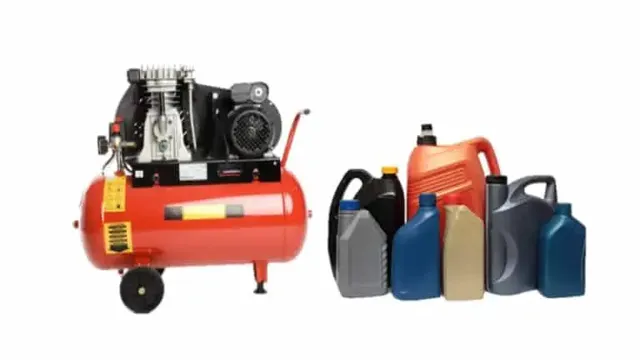
Suitability for Different Applications
When it comes to choosing between gear oil and compressor oil, it’s important to consider their suitability for different applications. Gear oil is a type of lubricant that’s specifically designed for use in gearboxes and other gear applications, where it provides excellent protection against wear, corrosion, and foaming. Compressor oil, on the other hand, is used to lubricate the moving parts of air compressors, providing protection against rust, oxidation, and wear.
While both oils offer excellent protection, they’re not interchangeable and should only be used in the applications for which they were specifically designed. So, before choosing which oil to use, it’s important to consider factors such as the type of equipment you’re using, its operating conditions, and the manufacturer’s recommendations. By doing so, you can ensure that your equipment remains well-lubricated and protected, extending its lifespan and avoiding costly repairs.
The Risks of Using Gear Oil in an Air Compressor
If you’re wondering if you can use gear oil in your air compressor, the short answer is no, it’s not a good idea. The reason for this is that gear oil is designed for use in applications that involve sliding or meshing gears, whereas air compressors require a lubricant that’s specifically formulated to handle the high temperatures and pressures involved. Using gear oil in your air compressor can lead to a number of problems, including reduced efficiency, increased wear and tear on the compressor, and even serious damage to the system as a whole.
Instead, it’s important to choose a high-quality compressor oil that’s designed to provide the right level of protection for your machine, and to follow the manufacturer’s recommendations for oil type and change intervals. By taking these steps, you can help ensure that your air compressor runs smoothly and efficiently for years to come.
Damage to the Compressor
Air compressor, Gear oil, Damage, Risks Using gear oil in an air compressor can lead to severe damage and pose significant risks to the machine’s overall performance. A compressor’s internal components, such as the compressor bearings and motor shafts, are not designed to operate using gear oil, which can cause friction and insufficient lubrication, resulting in breakdowns. The oil also lacks the necessary additives that are crucial in an air compressor’s oil, which reduces wear, prevents rust, and ensures efficient heat transfer.
Using gear oil in an air compressor can lead to rust and corrosion, which could degrade the machine’s performance, leading to expensive repairs or replacement. Therefore, it’s essential to use the manufacturer’s recommended oil bearing the correct viscosity and additives to guarantee the compressor’s longevity and performance.
Increased Risk of Fire
Using gear oil in an air compressor may seem like a quick fix, but it can actually increase the risk of fire in your workspace. Gear oil is not designed for use in high-heat environments, and air compressors generate a lot of heat during operation. When gear oil is subjected to high temperatures, it can degrade and produce flammable vapors.
If these vapors come into contact with a heat source or spark, they can ignite and cause a fire. That’s why it’s important to only use air compressor oil that is specifically formulated for high-heat environments. Investing in the proper oil can save you from the devastating consequences of a workplace fire.
So, before you reach for that gear oil bottle, make sure you check the manufacturer’s recommendations for the specific oil to use in your air compressor. Your safety and the safety of your colleagues depend on it.
Decreased Air Quality
The use of gear oil in an air compressor can have serious consequences, particularly when it comes to the environment. When gear oil mixes with the compressed air, it can lead to a major decrease in air quality. This is because gear oil contains harmful chemicals that can be released into the air when the compressor is running.
These chemicals can cause respiratory problems for those who are exposed to them, and can even lead to long-term health issues if they are not properly handled. Additionally, the release of these chemicals can negatively impact the surrounding environment by contaminating the air and water. It’s important to ensure that you are using the proper oil for your air compressor to avoid these risks and promote a safe and healthy working environment.
By using a high-quality synthetic compressor oil that is specifically designed for air compressors, you can ensure that your compressor runs smoothly without posing a risk to your health or the environment.
Alternatives to Gear Oil for Your Air Compressor
If you’re wondering, “Can I use gear oil in my air compressor?” the answer is technically yes, but it’s not recommended. Gear oil is designed for use in industrial gearboxes and is thicker and more viscous than the oil typically used in air compressors. As a result, gear oil can cause unwanted buildup and strain on the compressor components, leading to decreased efficiency and a shorter lifespan for your equipment.
Instead, it’s best to use a lubricant specifically designed for air compressors, such as synthetic compressor oil or mineral compressor oil. These oils are optimized for the unique demands of air compressors, providing better lubrication and protection without causing the buildup and strain associated with using gear oil. Ultimately, taking the time to choose the right lubricant for your air compressor can help to preserve its longevity and ensure optimal performance over time.
Compressor Oil
If you own an air compressor, then you know that it needs oil to function properly. Gear oil is a popular choice among many users, but did you know that there are alternatives available? One such alternative is compressor oil. This type of oil is specially formulated to handle the high temperatures and pressures found in air compressors.
It is also designed to provide excellent lubrication and to resist oxidation. Another benefit of compressor oil is that it does not contain the additives found in gear oil, which can be harmful to the environment. By using compressor oil, you can extend the life of your air compressor and reduce your impact on the environment.
So why not switch to compressor oil today and see the difference it can make?
Synthetic Oil
As an air compressor owner, you understand the importance of lubricating your compressor’s internal components for optimal performance and longevity. However, using traditional gear oil can have negative effects, such as increased sludge build-up and reduced compressor efficiency. That’s where synthetic oils come in as a great alternative option.
Unlike traditional gear oil, synthetic oils are designed with specialized additives that provide superior protection against wear and tear. They also have a longer lifespan and are less likely to oxidize or break down. Using a high-quality synthetic oil can significantly improve your compressor’s performance and reduce the need for frequent oil changes.
However, it’s crucial to choose the right type of synthetic oil for your compressor, as using the wrong viscosity or weight can cause damaging effects. Consult your compressor’s manual or a professional to determine which synthetic oil is the best fit for your needs. Overall, synthetic oils offer a cost-effective and efficient solution to traditional gear oil for your air compressor.
Conclusion
After considering all the factors, it’s clear that using gear oil is not ideal for your air compressor. It’s like trying to use a hammer to screw in a nail – it might work, but it’s not the best tool for the job. So, let’s leave the gear oil for the gears and find the proper lubricant for our beloved air compressors.
“
FAQs
What type of oil should I use in my air compressor?
You should use compressor oil or synthetic compressor oil, but not gear oil.
Can I replace compressor oil with gear oil in my air compressor?
No, gear oil is not recommended for air compressors because it doesn’t provide the needed lubrication and can damage the compressor’s components.
Is it essential to use manufacturer recommended oil in my air compressor?
Yes, it is highly recommended to use the oil recommended by the manufacturer for optimal performance and to prevent damage.
How often should I change the oil in my air compressor?
The frequency of oil changes depends on the usage of your air compressor, and it’s generally recommended to change the oil every three months or after 500 to 1000 hours of usage.
What happens if I use the wrong oil in my air compressor?
Using the wrong oil in your air compressor can lead to issues like decreased performance, overheating, and even damage to the compressor’s components over time.
Can I add more oil than recommended in my air compressor?
No, it’s best to follow the manufacturer’s recommendation for the oil level in your air compressor. Adding too much oil can lead to oil leaks and increased friction.
Can I use synthetic oil in my air compressor?
Yes, synthetic compressor oil can provide better performance and longer lifespan than regular compressor oil, but it can be more expensive.


